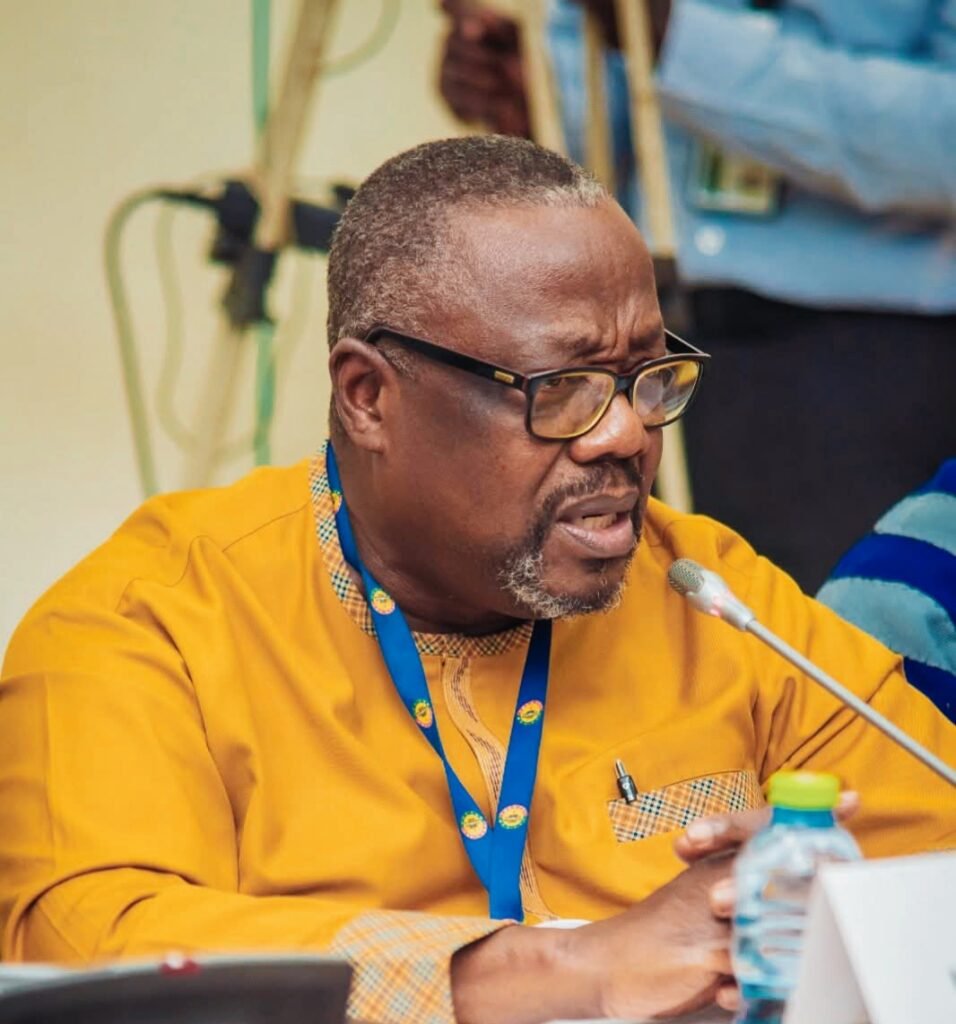The Public Accounts Committee (PAC) of Parliament has directed that former management officials of the Electricity Company of Ghana (ECG) be referred to the Attorney-General for prosecution and recovery of funds following revelations of massive overspending and financial irregularities.
The directive was issued by the Ranking Member of the Committee, Hon. Samuel Atta-Mills, who cited egregious breaches of the Public Financial Management Act (PFMA), noting that the expenditures exceeded parliamentary budget approvals by over GHC 189 million.
“So, budget approval was GHC144 million, you spent GHC333 million. That’s an excess of GHC189.2 million. This shows financial indiscipline.”
Hon. Samuel Atta-Mills, Ranking Member of PAC
Hon. Atta-Mills accused ECG’s previous management of gross financial indiscipline, stressing that the company’s unauthorized expenditures reflected a systemic breakdown in oversight and accountability.
“Staff fuel, the budget was GHC 2.8 million, and you spent 3.6 million. Hey, did they drive around the world?” The Ranking Member exclaimed, highlighting the magnitude of excess spending.
“Communication expenses of ECG, the budget was 4.2 million, but you spent 7.9 million.
“Consultancy, budget was 40 million, but you spent 58.6 million. All these you did on your own without even board approval.”
Hon. Samuel Atta-Mills, Ranking Member of PAC
Hon. Atta-Mills continued, citing more disturbing figures: “Industrial relations, your budget was GHC2 million, but you spent GHC13 million,” he revealed.

“Stakeholder expenses, your budget was GHC3.1 million and you spent GHC49 million, and you want to increase our tariffs? Publicity, your budget was GHC5.7 million and you spent GHC21.8 million.”
Hon. Samuel Atta-Mills, Ranking Member of PAC
The Ranking Member further revealed that professional fees, overseas travel, and call center costs were among the other expenditure areas that ballooned beyond their approved limits.
“Professional fees and subscription, you were supposed to spend GHC700,000 and you spent GHC1.5 million.
“Overseas travel expenses, you were supposed to spend GHC14 million and you spent GHC29.8 million. Call center expenses, you were supposed to spend GHC23.5 million, you spent GHC29.3 million.”
Hon. Samuel Atta-Mills, Ranking Member of PAC
He described the situation as a classic case of financial recklessness and disregard for public accountability laws.
“This shows financial indiscipline. And the recommendation over here is that sanctions under Section 96 of the Public Financial Management Act, 2016 (Act 921), should be applied to the officers involved.”
Hon. Samuel Atta-Mills, Ranking Member of PAC
He further directed that the former managers responsible for the irregularities be referred to the Attorney-General for recovery and possible prosecution.
ECG’s Mounting Liabilities and Tax Breaches

The revelations come amid mounting concerns about ECG’s financial management and operational efficiency.
According to the 2024 Auditor-General’s Report, the company incurred a withholding tax liability of GHC 70 million and made payments amounting to GHC 1.29 billion to contractors and for the purchase of liquid fuels without the approval of its management board.
The report painted a worrying picture of a company struggling to maintain financial discipline despite repeated calls for reform.
During the PAC session, which featured the appearance of several state-owned enterprises under the Ministry of Energy, the committee members expressed frustration over recurring fiscal lapses and governance failures across the energy sector.

The Chairperson of the Committee, Hon. Abena Osei-Asare, expressed deep concern about the sharp increase in ECG’s distribution and administrative expenses, which have soared despite the company’s ongoing liquidity challenges.
She noted that such rising costs were inconsistent with ECG’s core operational priorities and could undermine efforts to stabilise the power distribution network.
“We are seeing expenditure patterns that do not align with efficiency or service improvement. This cannot continue.”
Hon. Abena Osei-Asare, Chairperson of PAC
The committee urged ECG’s current management to take urgent steps to restore fiscal discipline, strengthen internal audit systems, and comply strictly with budgetary approvals in order to rebuild public trust.
Accountability and Sectoral Reform
Energy experts and civil society groups have long warned that ECG’s persistent inefficiencies and weak financial controls pose serious risks to Ghana’s broader energy security.
The company, which distributes over 80% of the country’s electricity, has often come under criticism for poor service delivery, high technical losses, and delayed payments to power producers.
The latest revelations have reignited calls for deeper institutional reforms. Without strict enforcement of the Public Financial Management Act and greater transparency in procurement and expenditure tracking, ECG’s financial situation could worsen, with ripple effects across the entire energy value chain.
As the Attorney-General prepares to act on the committee’s recommendations, the case is expected to become a critical test of Ghana’s resolve to strengthen public sector accountability and financial governance, especially in state-owned enterprises that continue to depend heavily on the national budget.
READ ALSO: BoG’s $1.15bn FX Injection Sparks Clash with IMF and World Bank Over Cedi Stabilization























